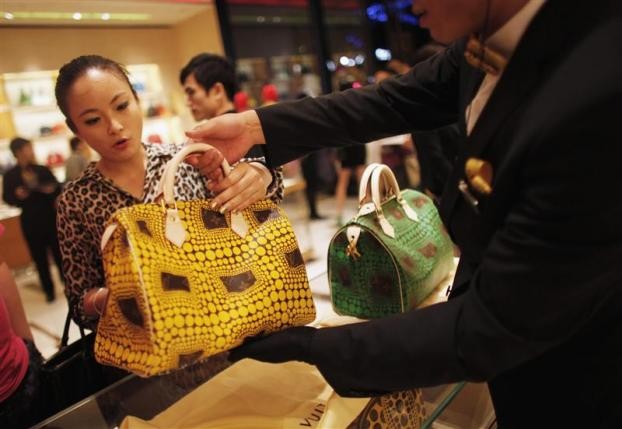In a bid to push domestic consumption and put pressure on tax evaders, the Chinese government has started to curb on alleged “smugglers” carrying suitcases of luxury goods as well as raised fees on packages ordered and bought overseas, Shanghai Daily reported.
According to the report, only a fifth of luxury good sales actually take place on mainland China, despite the fact that Chinese shoppers account for about a third of global sales of luxury goods.
The rest of the purchases were bought abroad by Chinese tourists, ordered from foreign websites or smuggled into the country through suitcases and sold online or personally by "personal shoppers" known as daigou.
The government has been trying shift away from exports and rebalance its economy, but smuggling of luxury goods has affected China's tax revenue and discouraged domestic consumption, especially for higher quality goods.
"China wants to attract the outbound purchases back and cultivate a domestic luxury consumption market, which is consistent with the target to develop a consumption-driven economy," Yating Xu, an economist for HIS Global Insight, said.
In mainland China, luxury items are sold at high prices, such as the latest Dolce & Gabbana bag, which sells about 50 percent cheaper in Milan or in Paris. However, to close the gap, brands like Chanel have lowered their prices in China last year.
However, to make sure that items are genuine and they have a better choice, some Chinese prefer to buy expensive items abroad. While some luxury firms have opened boutiques in China, their products do not sell and their goods have some damage.
Last year, sales of luxury items dropped 2 percent on mainland China, according to consultancy firm Bain & Co., as purchases by Chinese buyers rose 251 percent in Japan, 31 percent in Europe and 33 percent in South Korea.
Roth Lai, deputy editorial director at Elle China, said that the online market is also challenging bricks-and-mortar shops.
"E-commerce has become really the main driving force in the luxury goods market in China, but I think the Chinese will continue to buy outside of China for the foreseeable future, until there is a major shift in economic structure in China," Lai said.
Penalties for false declarations were increased by the government, as customs control has been tightened. More travelers bringing in suitcases full of luxury goods are to be caught at the airport and taxes are going to be imposed on the goods they brought in.
The government also started to implement higher taxes on several goods including those imported via the Internet or carried in by daigou.
Watches ordered overseas will be imposed 60 percent higher tariffs, while those on jewelry will increase from 5 points to 15 percent, the report said.
"We expect an adverse impact on overseas purchases by Chinese daigou and tourists alike," Luca Solca, an analyst with Exane BNP Paribas, said.




























